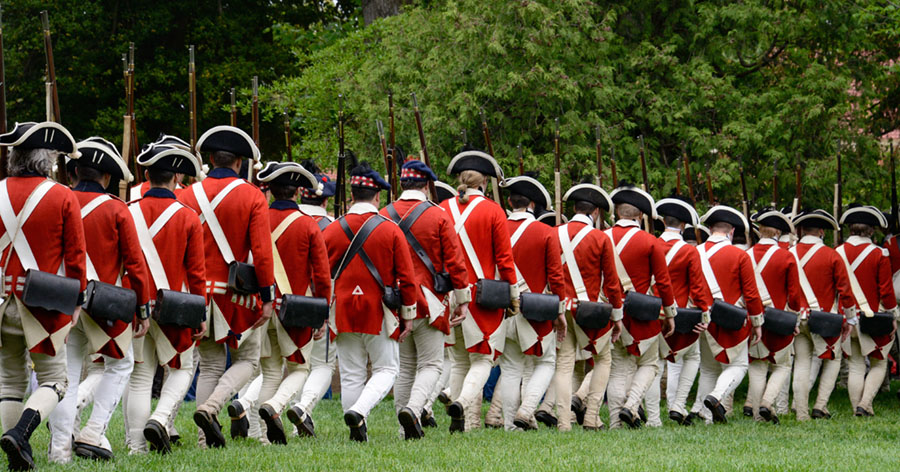
The American Revolution Battles
Some American Revolution Battles Continue to This Day in Many Ways. People Are Discovering a Patriotic Means of Effecting Change in the US, Activism for Revolution.
The American Revolution battles were the only battles fought on American soil against foreign aggressors.
King George deployed British troops to quell the emerging American dissatisfaction with British tyranny.
The first battle at the bridge in Concord showed the ineffectiveness of the contemporary English style of fighting; American soldiers essentially hid behind trees and other forms of protection and harassed the British soldiers all along the road.
The British called this guerilla style cowardly; the Americans called it a victory.
The next battle took place outside Boston at Bunker Hill; although technically a British victory it showed the resolve the colonial forces had in order to achieve their independence.
As the first American Revolution battles proved the capabilities of the colonial forces, there were still many who sought peace.
The second Continental Congress was convened to discuss how the thirteen colonies were to proceed.
An attempt at peace was sent to King George III, the Olive Branch Petition, which he summarily turned away proclaiming the colonies in rebellion and traitors.
The Americans responded with taking the fight to the British in Canada with success in Montreal and failure in Quebec.
In 1776, Washington took over the Continental Army and began an 11 month siege of Boston leading to the eventual British evacuation of the city.
With those few American Revolution battle being fought the colonists were now in control of the majority of the territory in the fledgling nation.
This led to the adoption of state constitutions by many of the colonies and the Declaration of Independence proclaiming the freedom of all thirteen colonies from British rule.
However, the battles were far from over as the British returned in July of 1776; in the ensuing battle of Brooklyn they almost managed to capture Washington.
New York would be under British control for the remainder of the war until they evacuated in 1783.
An Early End?
Even though there had only been a few American Revolution battles at this point, peace was still desired.
After the Battle of Brooklyn, the British commander, Howe, asked to meet with representatives of the Continental Congress.
he immediately demanded that the Declaration of Independence be retracted; his demand was refused and negotiations ended until 1781.
The Last of the Battles
The Battle of Yorktown is considered the last of the American Revolution battles.
With the surrender of forces by General Cornwallis the fight appeared to be won. Now came the tough part- forming a government that would work.
Wanting freedom and having it were two distinctly different things. Now it was up to the newly formed nation to see how they would keep it.

 My First Amazing Ayahuasca Experience
My First Amazing Ayahuasca Experience  Pine Needle Tea
Pine Needle Tea  The REAL Controllers of Humanity: The Papal Bloodlines
The REAL Controllers of Humanity: The Papal Bloodlines  Is it Global Warming or Cooling?
Is it Global Warming or Cooling?  Gun Rights and Obama Examined
Gun Rights and Obama Examined